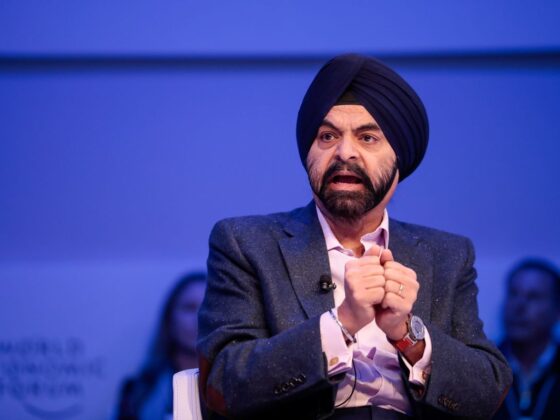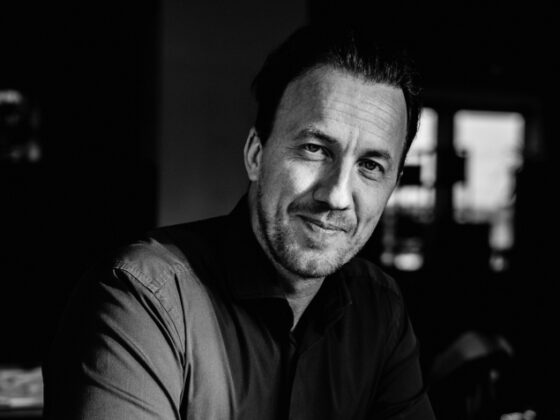Last year, I wrote a piece on ‘Complicity Theorists’ parodying the generic articles that the media puts out criticising conspiracy theorists. This article is the same sort of thing, except we are going to break down an article (with humour) rather than write a satirical essay. So let’s have a look on the ADL article on Conspiracy Theorists and see if we can’t have some fun with it:
Conspiracy Theories and How to Help Family and Friends Who Believe Them
Why assume we want your help?
Do you have someone in your life who has been drawn in by a conspiracy theory? Has their behavior changed and you’re not sure how you can help?
I was an obsessive weird loner before I became a ‘conspiracy theorist’, so yeah, don’t think I became one just because I watched too many videos from The Last American Vagabond and read too much Substack.
Perhaps your parents have ventured down the QAnon rabbit hole and have become obsessed with trying to decode social media posts by public figures. They send you a daily stream of articles and YouTube videos about how the government is controlled by pedophiles who are running a child sex trafficking ring, and they’re especially worried about the daycare center your kids attend.
I mean QAnon is a BS FBI psyop (no politician is gonna save you and that includes Donald ‘Warp Speed’ Trump), but has this person not heard of Jeffrey Epstein, Jimmy Savile, etc.?
When your family all got the Covid-19 vaccine, your mom warned you that the government implants chips in the vaccine to monitor people. Since your parents haven’t gotten the vaccine themselves because of this belief, you don’t visit them very often.
Sounds like the asshole in this scenario is the normie who doesn’t want to see his/her parents because they are not ‘vaccinated’.
Even though he doesn’t have children in the local school, your friend attends school board meetings because he is tired of “diversity” being taught to young children.
It’s not ‘diversity’ that’s the issue, people just don’t want sexualised drag queens performing in front of their kids.
You notice this friend has switched jobs every few months because he’s always getting into arguments with customers and his co-workers.
Ah yes all ‘conspiracy theorists’ argue about their politics at work.
Conspiracy theories can be defined in a variety of ways. In general, they reject established and accepted narratives, implying that sinister and powerful forces are manipulating various events and situations behind the scenes, usually for political gain.
Rejecting established narratives? Such as ‘Iraq has WMDs’, ‘Incubator Babies’ ‘Assad gassed his own people at Douma’, ‘Gulf of Tonkin’, those official narratives? How dare people think the people who pushed those narratives might be liars! How dare people question if, uh, Mike ‘We Lied We Cheated We Stole’ Pompeo is telling the truth?
As for ‘manipulation’ do people really believe that elites DON’T manipulate shit? ‘I can believe that so-and-so at work manipulates shit for petty office politics reasons, but that the most powerful people on the planet do this for their own political/economic gain, well, that’s beyond the pale.’
Conspiracy theories have been around for centuries, and often emerge from a need to make sense of the world around us.
No they emerge from the fact that official narratives don’t make fucking sense. Like the Skripals. Their own timeline that THEY put out THEMSELVES is nonsensical. We’re supposed to believe that Putin, allegedly the most competent 6d chess master on the planet, sent two cavorting assassins to Salisbury to smear the most deadly nerve agent on the planet on a doorknob and then hung around outside an antique shop rather than get the hell out of dodge. Just weeks before Russia was due to host the World Cup to promote itself on the world stage. I mean who could question this except someone who’s criminally insane?
Why do people get drawn into conspiracy theories?
Epistemic: This motivation is a need for knowledge, information and certainty. When a major event happens, people want an explanation for it and most importantly, they want to feel certain of that explanation. When people feel uncertain in specific situations or generally feel uncertain, they are drawn into conspiracy theories to help provide that certainty.
If they want ‘an explanation they can feel certain of’ surely they’d just believe the establishment narrative as those allow no criticism. Heck there is enough people who peddle the establishment’s crap who fall into that category.
Another key factor is people’s educational backgrounds; they may lack the critical thinking skills necessary to differentiate between credible and non-credible sources of information. As a result, they are looking for knowledge and certainty but do not have the tools and understanding to look in the right places.
Yeah those thick plebs don’t understand that the BBC and Reuters are supposed to be ‘trusted sources’ and you need to believe them without question, damn you!
Existential: This motivation drives the need for people to feel safe and secure in their world. People need to feel they have power over the things that happen to them and, conversely, they don’t like to feel out of control or powerless in their lives. Conspiracy theories help them believe that they have information that explains why they lack control in specific situations and more generally. Therefore, people who feel powerless tend to gravitate towards conspiracy theories.
The correct interpretation here: “People who have been screwed over by the establishment are more likely to consider perspectives that criticise the establishment.” Which is bleedingly obvious.
On an individual level, believing you have access to information and the truth, while others do not have that knowledge, gives one a feeling of superiority over others that can feed self-esteem.
Then why do ‘conspiracy theorists’ bash our heads against the wall trying to get normal people to see that, I dunno, the mRNA ‘vaccines’ are poison if all we want is for special knowledge to make us unique?
There are real reasons for people to distrust governments, corporations and other powerful figures and groups. Actual conspiracies and cover-ups occur quite regularly; Watergate, the Tuskegee experiments and COINTELPRO were all real events. However, while real conspiracies do exist, this doesn’t mean that every event or situation is the result of a nefarious plot or that powerful figures are always trying to hide the truth.
So conspiracies happened 50 years ago but don’t question if they are going on NOW you conspiracy theorist!
The Conspiracy Theory Handbook, published by Dr. Stephan Lewandowsky, a professor of cognitive science at the University of Bristol in the UK, and Dr. John Cook, a professor at the Center for Climate Change Communication at George Mason University, outlines seven traits of conspiratorial thinking, summarized with the acronym CONSPIR:
Contradictory ideas: People who have bought into conspiracy theories can simultaneously believe in ideas that contradict each other. For example, some believe that Covid-19 is a U.S.-created bioweapon but also that the virus is a hoax and doesn’t actually exist.
No, those are two separate theories that exist among those who question the Official Covid-19 Narrative. No one literally believes both. Someone might be willing to entertain both but that isn’t the same thing. Someone might say ‘On the balance of evidence I think 70% chance it is a lab virus, 30% it doesn’t exist’, that’s not the same thing either. In fact the ‘it came out of a lab’ people and the ‘no virus’ people will often argue with each other.
Overriding suspicion: Conspiracy theorists will dismiss “official” sources and any information that doesn’t “fit” neatly into the theory. They promote the idea that “traditional” sources of information–such as mainstream news outlets and academic researchers–are unreliable and are even “in on” the conspiracy, attempting to distract people from the truth.
Yes because official sources are full of fucking liars, see ‘Iraq has WMD’s’.
Journalists may sincerely believe establishment narratives, but they simply would not be hired if they did not, so mainstream media simply selects for the most dumb people on the planet who have a posh accent and sound like they know what they are talking about. Journalists are largely ‘useful idiots’ and aren’t important enough to be ‘in on the conspiracy’ a lot of the time (Dan Rather’s statement on Zapruder would be an example where the journalist was ‘in on the conspiracy’).
Nefarious intent: The people and groups behind these supposed conspiracies are always presumed to have nefarious intentions – their motivations are never benign.
Funny how all of their so called ‘mistakes’ have disastrous consequences for humanity though. I mean the guys that did Iraq then decided to go after Syria. You’d think if it was benign they’d have learned their lesson to not destroy countries?
Something must be wrong: Even if you can debunk a conspiracy theory, believers will still believe the theory because they fundamentally believe that “something must be wrong.” For conspiracy theorists, nothing is as it seems.
That’s because you probably haven’t ‘debunked’ it.
Persecuted victim: Conspiracy theorists believe that they are victims of the conspiracy. They also view themselves as heroes who are brave enough to stand up against the conspirators. If a fact-checker debunks a claim made by a conspiracy theorist, they’re seen as simply trying to discredit the believer and cast doubt on the truth.
Yeah because that’s the function of establishment funded fact checks.
I don’t think I’m important enough to be a ‘hero’, that’s generally the guys who go around talking about how they ‘destroy antivaxxers’ on Twitter, or whatever. Like that Ian Copeland guy.
Immune to evidence: Conspiracy theories cherry-pick “evidence,” selectively choosing bits of information that support the narrative and casting aside anything that contradicts the claim. Evidence that contradicts the conspiracy theory will be re-interpreted as originating from the conspiracy.
And the MSM doesn’t do this? No one is able to match up every single piece of evidence to a theory to 100% perfection (because reality is too complicated for this to be achievable), every theory has to emphasise or deemphasise certain facts. It’s about the theory that is most plausible. And conspiracy is the most plausible explanation in many cases (e.g. JFK assassination to take an obvious example).
Re-interpreting randomness: Conspiracy theories encourage believers to “do their own research” and collect their own “evidence” to prove the claim, looking for ways in which various events, people and situations are related. Events that have nothing to do with the conspiracy theory will be re-interpreted as being caused by the conspiracy.
As opposed to the establishment who tell you to uncritically believe everything out of their mouths. I know who I’m going with.
We can all fall for conspiracy theories and unintentionally aid their spread. That’s why it’s crucial for all of us to learn how to spot them. Here are some suggestions:
Check the source of the information. Additional red flags are raised when articles contain lots of grammatical errors, lack sources or are all written by the same author, or if a website contains an unusual URL or lacks an “About Us” section.
So if I get some guest authors I’m trustworthy then?
Check multiple sources. Are other, credible news outlets and experts sharing the same information? If a story is real, many publications will cover it. Have fact-checking sites like Snopes and PolitiFact refuted the claims?
Dr. Malone, Dr. McCullough, Dr. Kory, Dr. Yeadon, Dr. Bhakti, Dr. Vanden Bossche, etc, are all criticising mRNA jabs but they are all cranks according to you, despite the fact they are obviously credentialed experts. What you actually mean is if your ‘approved experts’ say something.
Evaluate photos and videos that accompany stories and social media posts. Conspiracy theorists will often use old and/or manipulated images to support their stance. Conduct a reverse image search on Google or TinEye to see if the image has shown up elsewhere and if it has been manipulated. If it has, there’s a good chance you’re being played.
What you can do (and not do) to help those who have fallen for conspiracy theories?
However, once a person has bought into a conspiracy theory, it can be difficult to help them see that the conspiracy theory is wrong, a lie and that it could lead to harm and danger.
“Once people have seen the evidence, it’s hard to stop making them see the evidence.” Well, no shit.
Learn more about the conspiracy theories: What are their central claims and where did they come from? This information puts you in a better position to understand what the person says and does.
Only make sure you read from ‘approved’ sources though, wouldn’t want to become a ‘conspiracy theorist’ yourself!
Don’t try to convince the person they are wrong, lying or ignorant. Many people think if they just send that person enough information to refute their claims, the person will change their mind. This denies the underlying need the person has to believe it and is unlikely to work. In fact, those who try to discourage a conspiracy theorist are often seen as being “in” on the conspiracy.
We don’t think you’re ‘in on the conspiracy’. We know you’re not that important.
Encourage the person to use critical thinking. You can do this by asking open-ended questions with genuine curiosity about what they believe and why. You can also encourage them to read different points of view on the topic.
Have you ever considered that we used to believe the establishment claims and then we learned more and then we rejected them?
Don’t come across as dismissive, judgmental or belittling.

If it becomes difficult to be around someone who has been drawn into a conspiracy theory, take a break. While you may take space away from the person, don’t close the door completely or cut them off. More than ever, they will need their loved ones when they stop believing the conspiracy theories.
Oh no, being around someone with different beliefs is just too hard, what am I going to do, BBC, SAVE ME!














